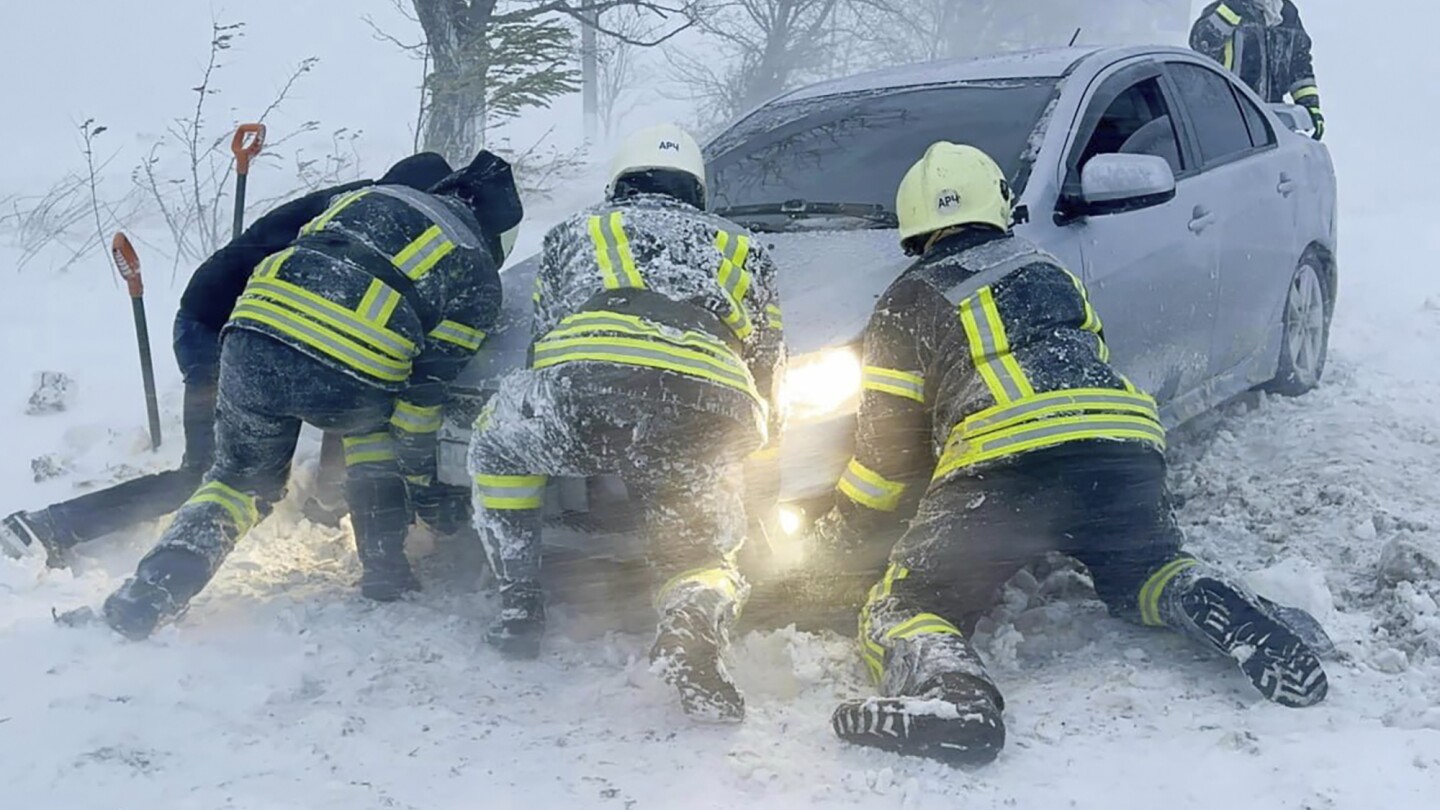Tornadoes were forecast for the Black Sea region on Tuesday, a day after a storm that left more than 2 million people without electricity in Crimea, Russia and Ukraine. A think tank said that the weather also impacted Russian military operations.
The storm killed at least 14 people in Russia and Ukraine officials said as it toppled trees, tore down power lines and flooded coastal areas.
President Volodymyr Zelenskyy said at least five people died in the Odesa region of southern Ukraine, and that engineers were working to restore electricity to villages that have been cut off.
On Tuesday morning, almost 100,000 people were still without power on the Crimean Peninsula and some still had no water supply, the Russia-installed governor said, announcing that several regions were still under a state of emergency.
Crimea, which was annexed from Ukraine by Russia in 2014, is a key military and logistics hub for Russia as it pursues its war in Ukraine.
The damage caused by the storm affected “the tempo of military operations along the frontline in Ukraine,” but has not stopped military activity entirely, the Institute for the Study of War said.
The Washington-based think tank reported that the storm forced Russia to return all of its naval vessels and missile carriers to their bases, and suggested that the threat of mines drifting in the Black Sea will increase because the storm has dispersed minefields.
There were also reports that the storm damaged railways in coastal areas which could have an impact on the Russian military’s logistics capabilities in occupied Crimea and southern Ukraine, the ISW said.
Winds of 108 kph (67 mph) were forecast for Tuesday in Crimea, southern Russia and parts of northwestern Russia, the state news agency Tass reported.
In the Vologda region, about 500 kilometers (310 miles) northeast of Moscow, more than 10 days worth of snow — about 25 centimeters (almost 10 inches) — fell in one day, Tass said, citing the mayor of a small town who said road clearing took twice as long as usual.
The storm also caused the Moscow region to be blanketed with snow Monday, piling drifts up to 25 centimeters (almost 10 inches) deep, three times heavier than normal, the Tass news agency said.
It was part of a weather system that created blizzard-like conditions in Romania, Moldova, Bulgaria and Serbia on Sunday, dumping snow and causing power outages and fatal traffic crashes.

